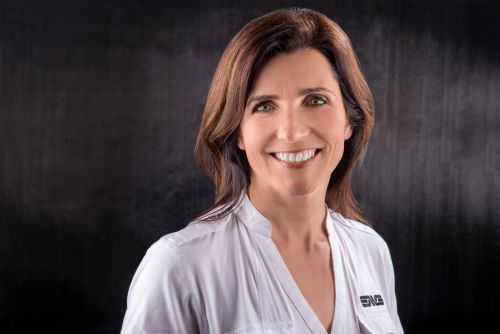By Sarah Lehman
Editor's note: Sarah Lehman is the CEO of ENVE Composites, based in Ogden, Utah. This column ran in the Salt Lake Tribune on Sunday.
Utah is home. It's where I've chosen to raise my children; it's where our company, ENVE Composites, has grown from a struggling startup to an established player in the cycling industry; and it is home to a growing outdoor business sector.
Just five years ago, ENVE was looking to expand and evaluated many locations within and around Utah for our new state-of-the-art manufacturing facility and global headquarters. In the end, we deliberately choose to stay in Ogden, Utah due to its strong economic environment, its access to public lands and its commitment to creating an outdoor cluster. ENVE has benefitted from many of the state's economic incentives as well as Utah's commitment to striking a balance between economic and environmental forces. We recruit some of the best talent as a result of the active lifestyle these policies afford. I have personally lobbied businesses and conventions to come to Utah.
Historically, Utah lawmakers and the outdoor industry have accomplished a great deal by working together. We've created jobs, built trails, protected thousands of acres of public land, fostered new industries and provided educational opportunities for our children.
At the local level, Utah is fortunate to be represented by people like Ogden Mayor Mike Caldwell, who commuted on his bike for an entire year to highlight his commitment to building a more bike-friendly community. The Utah Department of Transportation rewarded this commitment by approving a Bicycle Master Plan that will overhaul roads and make Ogden more bike-friendly. In leaders like Caldwell, the outdoor industry has committed partners in government.
At the state level, Utah has taken meaningful steps to create a vibrant outdoor recreation culture and business sector, as evidenced by the creation of the Outdoor Recreational Office. Utah was the first state to create such an office and its work has helped bolster an industry that's contributed an estimated $12 billion and 122,000 jobs to the state (per OIA). And let's not forget that Utah was the only state to reopen its state and national parks when the government shut down in 2013.
All of that good work has been jeopardized in recent months to an increasingly polarized conversation between the outdoor industry and the state's legislators. The impact is bigger than Outdoor Retailer leaving Utah. After years of courtship, the North American Handmade Bike Show chose Salt Lake City for its 2017 location. Sadly, they too are now threatening to never come back.
And to what end? No victories have been won. The outdoor industry is no better off. The protection of our public lands remains tenuous. True or not, we have created the perception of an unfriendly environment to public lands, policy and indigenous peoples.
This cannot be how the story ends, and I'm confident we can write a different ending.
I'm not naive; the impasse we find ourselves at is not an easy one to navigate. But I remain optimistic because I know that I'm not alone. Many on both "sides" hold similar beliefs. Instead of coming together we've allowed relatively minor differences and outside influences to divide. We're better than that and we will be moving forward. To my colleagues in the outdoor industry and fellow Utah companies, I hope you will join me in continuing this conversation in a collaborative manner with Utah's legislators.


